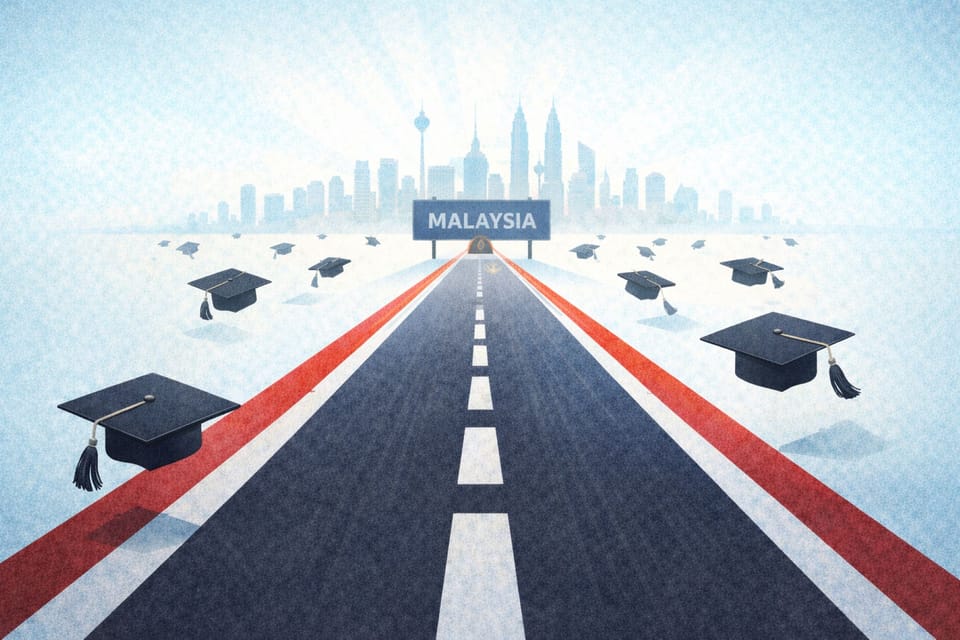What lessons from Seoul are shaping the next era of higher education?
QS MidWeek Brief - November 12, 2025. Look back on the recent QS Higher Ed Summit: Asia Pacific.
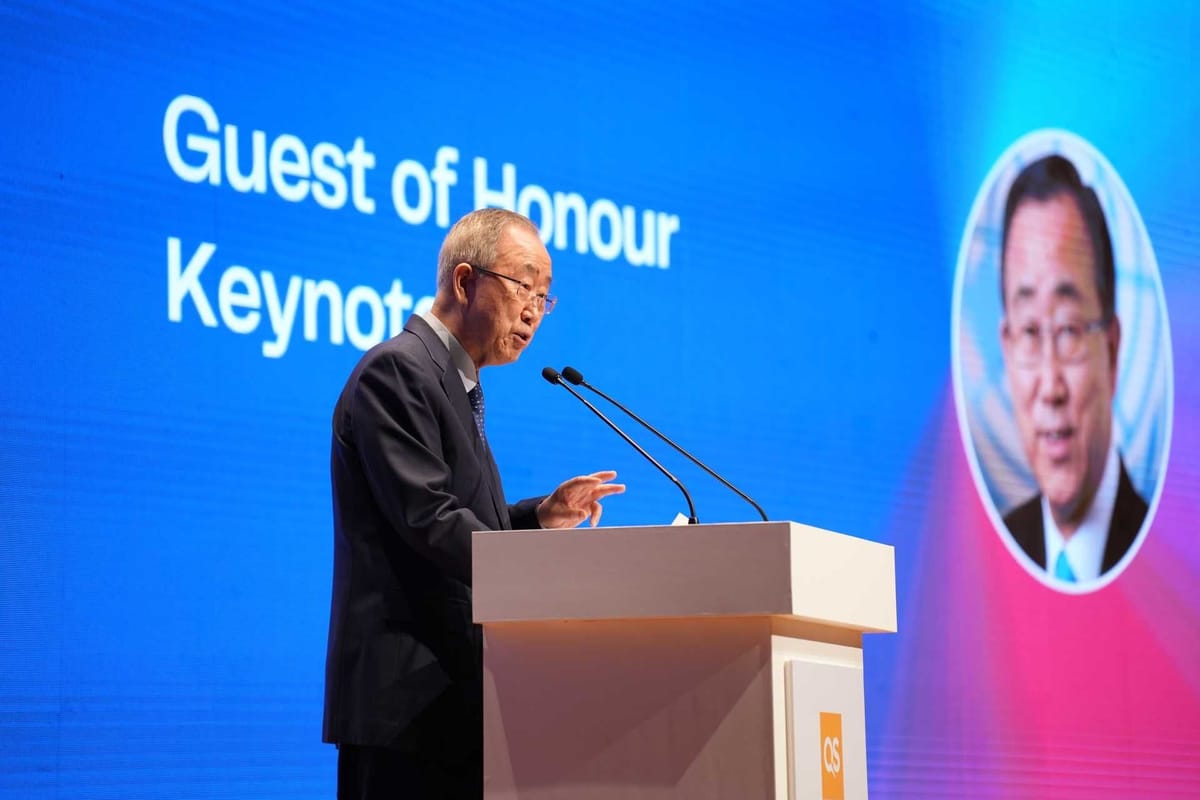
Welcome! It’s hard to believe it’s been almost a week since the conclusion of the 2025 QS Higher Ed Summit: Asia Pacific in Seoul. If you had the chance to join us, I hope you found it informative, and hopefully we got to chat in-person.
This week, we bring you some of the coverage from the summit. We also include our final piece from the October edition of QS Insights Magazine. Make sure to keep an eye out for next week’s November issue, which will include further takeaways from APAC, as well as Back to School and full insights into the 2026 QS Sustainability Rankings.
Stay insightful,
Anton John Crace
Editor-in-Chief, QS Insights Magazine
QS Quacquarelli Symonds
Global Challenges and Collaborative Solutions
By Eugenia Lim
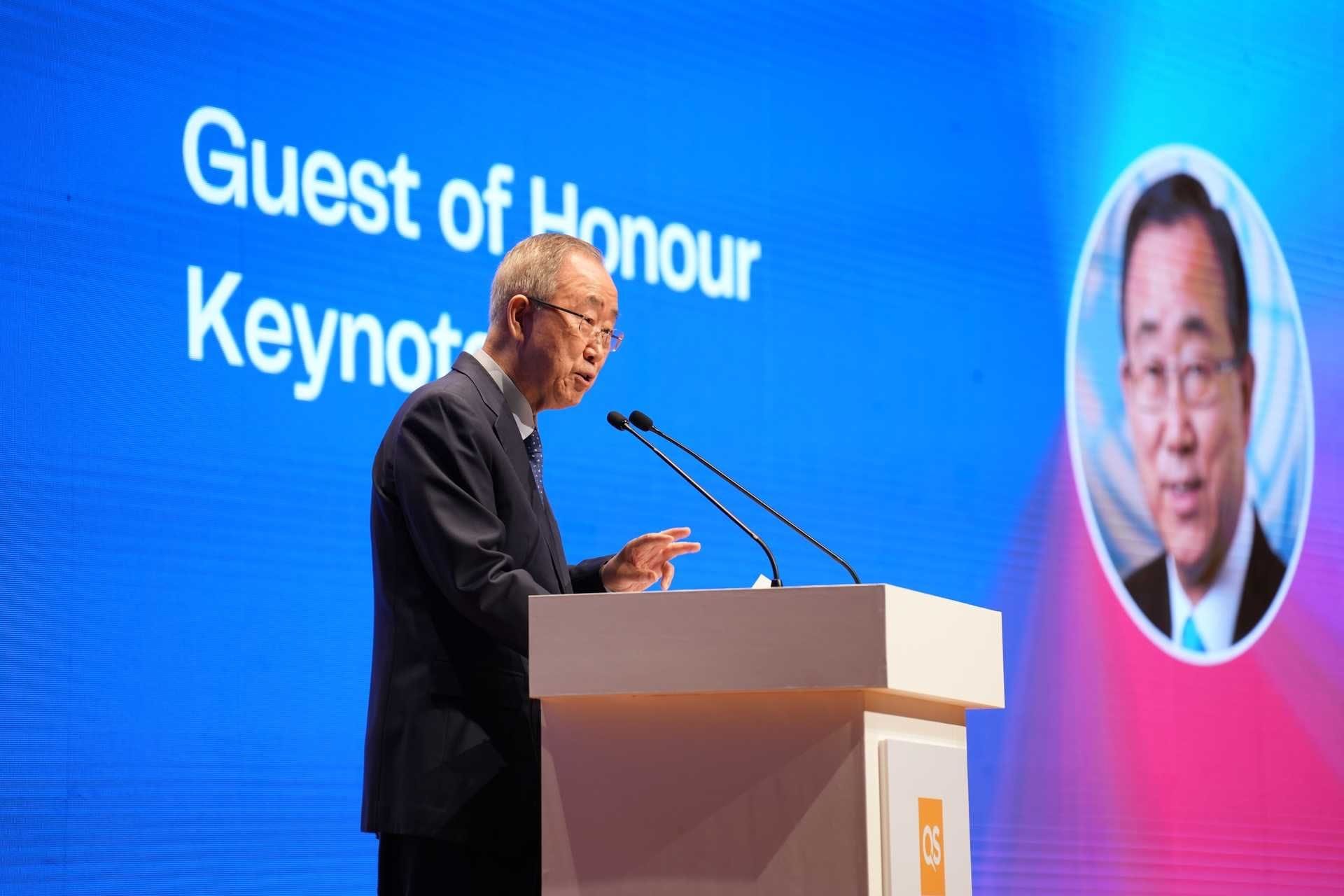
As humanity faces complex challenges like climate change, inequality and the relentless pace of technological advancements, Ban Ki-moon, the eighth Secretary-General of the United Nations (UN) emphasised the importance of working together as global citizens.
“No single nation or institution can meet these challenges alone,” said Mr Ban, speaking at the opening ceremony of the QS Higher Ed Summit: Asia Pacific 2025.
“We have to join all our hands together, that’s a hard lesson that I have learned during my 10 years of work as Secretary General of the UN.”
Themed Advancing Generational Potential: Skills and Partnerships in the Asia Pacific, the summit comes at a time when Seoul is increasingly being recognised as a hub for educational innovation and culture. It also marks the 120th anniversary of Korea University, celebrating academic excellence.
Mr Ban also highlighted Korea's transformative journey in modern history; the country flipped its fortunes in just a few decades, turning from a UN aid recipient to the world's 10th-largest economy and a donor country.
As a career diplomat who continues to promote higher education and global citizenship through the Ban Ki-moon Centres in Seoul, Vienna and New York, Mr Ban shared his belief that quality education is fundamental for fostering collaboration and addressing the challenges of today.
Calling on universities to go beyond job preparation, Mr Ban said universities must also foster critical thinking, empathy, and ethical judgment in their students.
“Young people are not only the beneficiaries of the future, they are its architects. As such our task is to empower them as global citizens, able to collaborate, innovate and act responsibly on a global scale.”
Mr Ban asked delegates to renew a shared commitment to build a more inclusive, resilient and sustainable world for all through quality education. He repeatedly called on universities to empower students not only to achieve personal success, but fulfil their responsibilities as global citizens.
“Let us strengthen partnerships among universities, governments and industries so that our collective efforts may yield lasting impact. True leadership is not measured by ranking or titles but by how many lives we uplift, how much potential we unlock and how deeply we contribute to humanity’s progress” he said.
Eugenia is a writer with over 10 years of experience in Singapore's broadcast industry. She is also a producer for Channel NewsAsia and is based in Seoul, South Korea.
Connectivity and Collaboration: APEC’s Aspirations for Higher Ed
By Anton John Crace
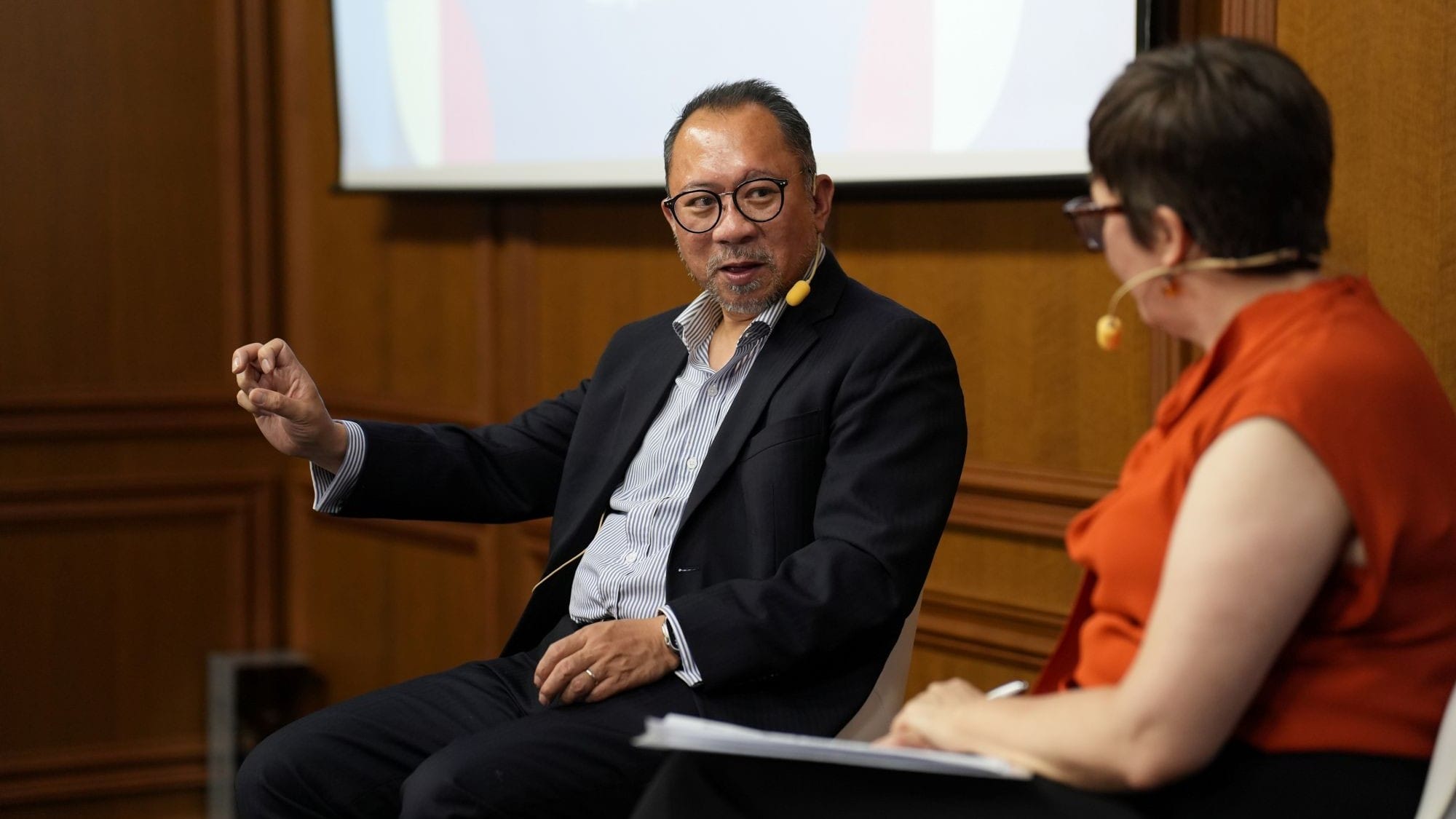
After a particularly tumultuous and uncertain year, the 2025 APEC Summit in Seoul saw the easing of trade tensions and renewed focus in the region on collaboration to overcome challenges. Eduardo Pedrosa, Executive Director of APEC, sits down with QS to reflect on the success of the summit, and his organisation’s goals to engage with higher education.
QS: What are you looking forward to for the upcoming 2025 QS Higher Ed Summit: Asia Pacific?
Eduardo Pedrosa: We're going through this tremendous period of change. We have AI coming up; we have a certain amount of volatility in the Asia Pacific region and the world, and other megatrends like climate change. Having the chance to interact with leaders of universities gives us a chance to better understand what the education sector is doing to respond to those changes, and how are they providing those services to students.
This is pretty basic, but it's fundamental to the path forward if we are going to make sense of the next 10 to 20 years.
QS: How do you see higher education and international education advancing APEC's mission?
EP: We need to change the old education model that you and I went through. Is [the traditional degree] enough to get by? Is even a Master's degrees, PhDs? Is that what we need in today's world?
Technology is moving so quickly, just keeping up with it is difficult; keeping up with the skills needed in the workforce, impossible. So how education is delivered, what is being delivered, and how it's being delivered.
We're trying in the policy space to think, what are the frameworks that we need to do? How does regional cooperation help? These aren't the easiest questions for us to wrap our heads around. As policymakers, we come from Ministries of Education or Ministries of Human Resources, but how close are we to the education sector and, of course, the employers as well?
QS: You’ve just completed the 2025 APEC summit. It was quite successful in easing some trade tensions. Are you happy with it?
EP: What I'm particularly happy about is APEC leaders showed up, including the leaders of the two biggest economies, as well as a whole lot of others, and they continue to engage. It might sound like a low bar, but it's actually an incredible achievement at this point in time.
I have this feeling that this is the time for more soft cooperation and that just the dialog in itself is helpful.
QS: The overall theme of the summit is achieving intergenerational potential. There is a massive opportunity for the Asia Pacific to harness its demographic strengths and educational excellence. How do you see bringing all this together to drive equitable growth?
EP: With a few exceptions, those economies that have aged quickly are quite wealthy. But we have some economies in our region that are still emerging. So how do you balance that out? What is the role of education in sort of bridging that demographic?
We also have our connectivity blueprint, and that has certain metrics, job flows and tourist flows. Another big part of this is education. How many intra-regional students do we have? Is that increasing; is it decreasing? This is a sort of indicator of whether or not we're moving closer towards our final goals in connectivity.
QS: How are increased flows are a net positive in this blueprint?
EP: Connectivity helps increase our wellbeing. It helps increase economic growth. We have physical connectivity, bridging between the hard infrastructure, then the institutional, which is policy alignment, and then we have the people-to-people.
One of the highlights of Korea's year has been looking at the creative industries. The excitement this year was about K-Pop, [but it’s also] Korean soft power and soft culture.
People get to know K-pop and they’re interested in visiting Korea. It's that dynamic between different industries that increase globalisation at a time where globalisation is not that popular. At a people level, it may well be more successful, rather than the policy level or the institutional level.
Anton is Editor-in-Chief of QS Insights Magazine. He has been writing on the international higher ed sector for over a decade. His recognitions include the Universities Australia Higher Education Journalist of the Year at the National Press Club of Australia, and the International Education Association of Australia award for Excellence in Professional Commentary.
Strategic Collaboration as a Growth Strategy for Higher Education
By Eugenia Lim
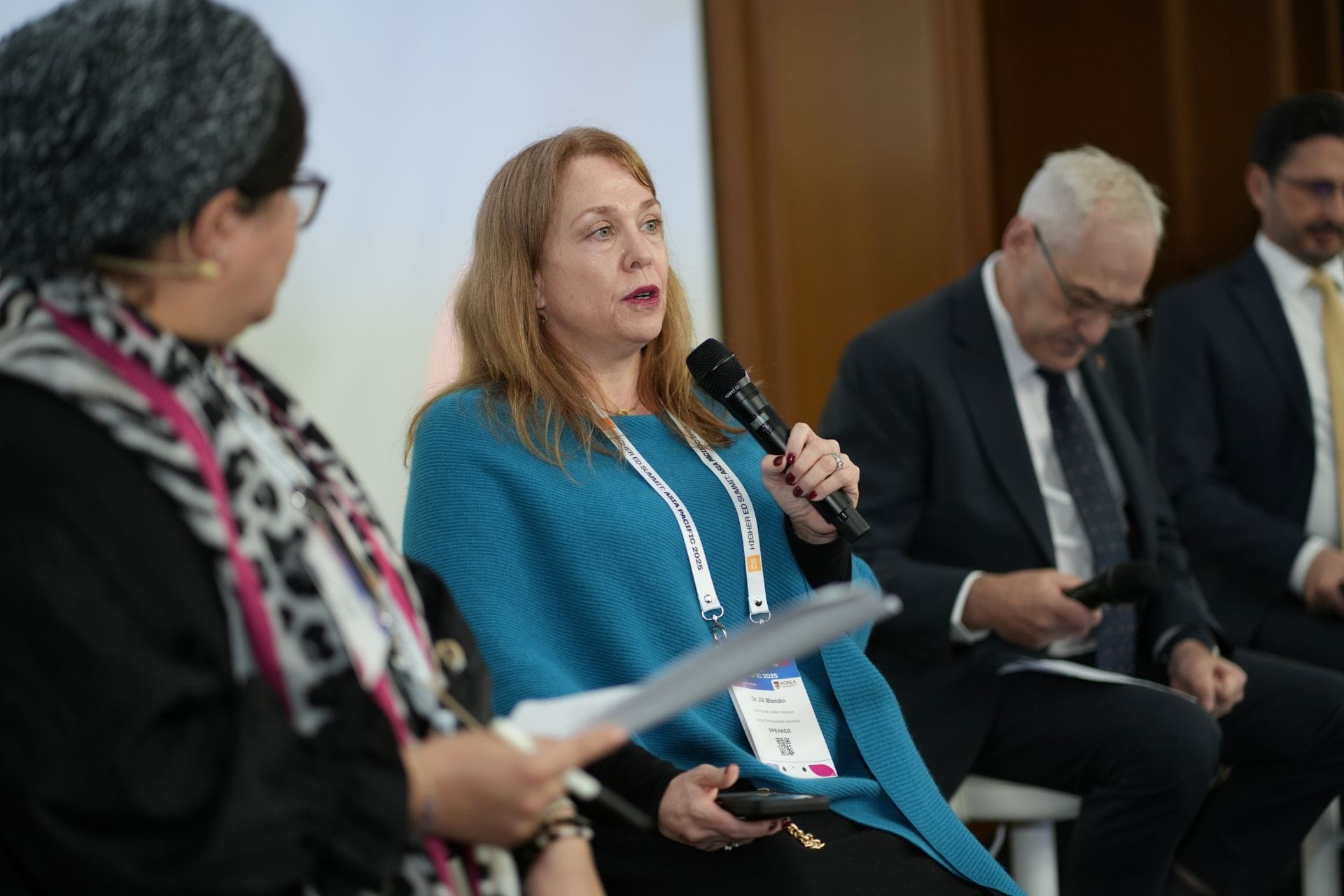
Collaboration amongst higher education institutions, industry and government is now a strategic necessity for innovation and relevance. Panellists representing Asia, the US and Middle East spoke of the importance of leveraging partnerships with other universities as well as industry and global entities.
“One of the pillars in our strategy is collaboration and partnership. I don’t think any institution by itself can be successful these days, I think you have to look at where you can collaborate and get a competitive advantage,” said Professor Barry Winn, President and Vice-Chancellor of Taylor’s University.
For Taylor’s University in Kuala Lumpur, Malaysia, this means teaming up with neighbouring institutions, Sunway University and Monash University Malaysia, in what they call a “triple alliance” for research and facilities.
In a post-pandemic world, there has been increased urgency and rapidity in developing collaborations, said Jill Blondin, Vice Provost, Global Initiatives at Virginia Commonwealth University in the US. She said there is a need to develop multi-pronged partnerships across research, academics, and student mobility and advised attendees to focus on the quality of partnerships, not just the quantity.
“We need to really focus on the value proposition and the way we align these partnerships with our own (university) missions,” she said.
This was echoed by Dr Ashraf Al Najdawi, Acting Vice President for External Relations of the UAE’s Khalifa University, who explained that it was integral to align any partnership with the university’s strategic objectives and impact.
“We drive impact. We have to look at how the collaborations impact and influence the economy, at the same time looking at enhancing the organisational efficiency,” he said.
In addition, Virginia Commonwealth University’s Jill Blondin stressed the importance of establishing mutual needs and value propositions for equitable partnerships. She emphasised the importance of reciprocity and cultural agility in order to achieve effective collaboration.
“The future of higher education is inter-institutional, it’s us working together to solve the problems that affect us in a rapidly evolving academic landscape,” said Vice Provost Blondin.
Given the growing geopolitical uncertainty and fast-paced technological advancements, panellists agreed that higher education institutions must band together in order to respond adequately.
“Universities are a force for good, so we need a global perspective. We need good and intelligent people to come together so that we can make really meaningful decisions,” said Professor Barry.
Breathing New Life into Education
By Anton John Crace
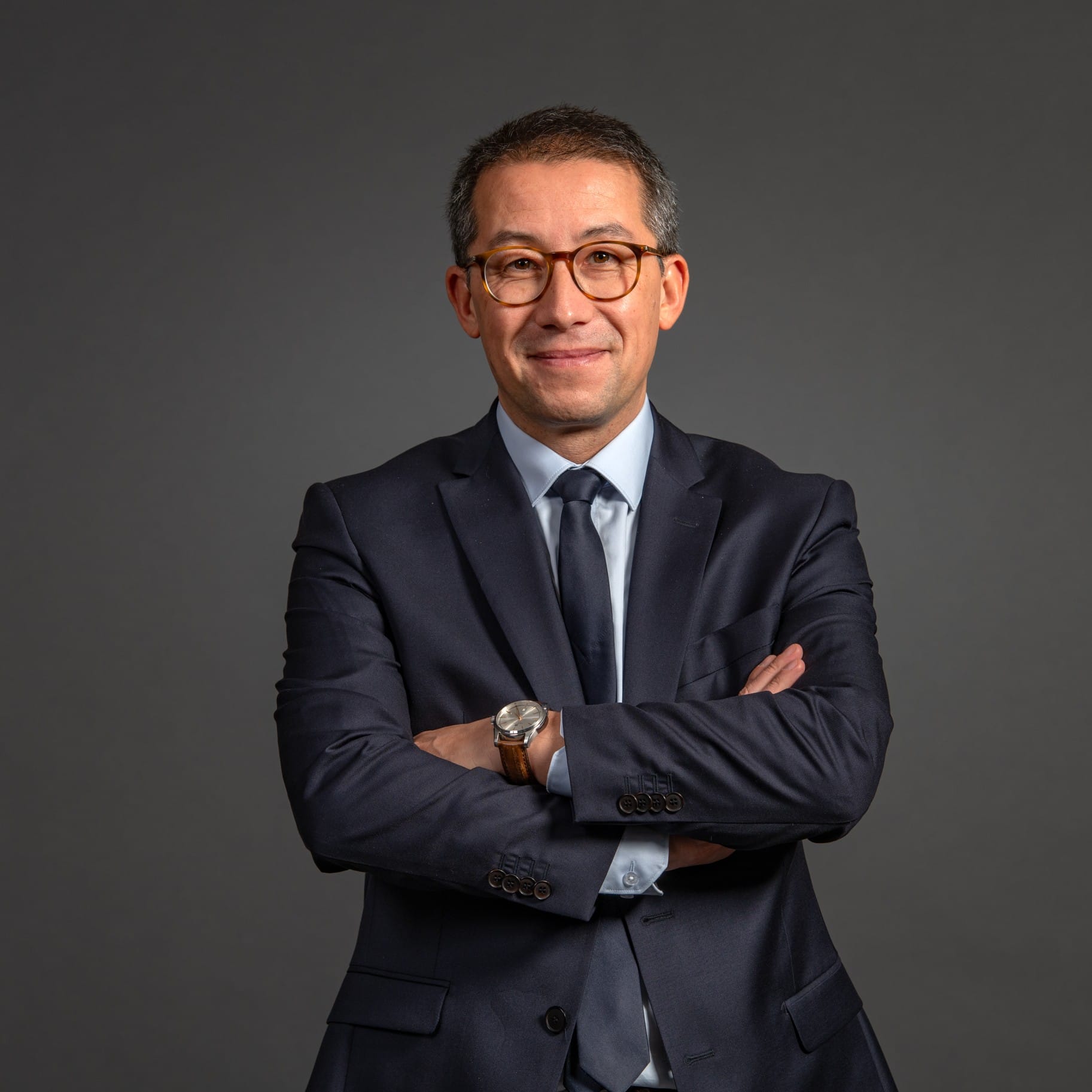
QS: Tell me more about Audencia. What's the makeup of students, its focus.
Dean Sebastien Tran: Audencia was born in Nantes, 125 years ago. We are triple accredited with EQUIS, AACSB and AMBA. We are one of the leading schools in France and in Europe, especially because we recruit a lot of students from different countries, not only in France.
We have different campuses. We developed, for example, a campus in Paris, but we have also collaborative campuses abroad. Three in China, one in Brazil, we opened last year one campus in Sydney. And we continue to develop our international expansion because we have different programmes from Bachelor’s to DBA. So, we have Master’s in Management, BBA, Bachelor’s Degrees, DBA, and we have Specialized Master’s. We have a great, an important portfolio
There are a lot of competitors in France and in the world, [so our point of differentiation is that] we are one of the first schools engaged in sustainability development. We created a school called a Gaïa, and this is the first school in France dedicated to ecological and sustainability issues. This is very important. And we have another school which is SciencesCom, a Communication and Media School.
QS: I was reading up on Audencia’s mission, which is to train responsible leaders to address the challenges facing organizations, societies and the planet. That's an important mission, and I'm curious as to what that means within practice.
ST: We have different definitions of this mission, because it is very important for the school. For example, we offer a lot of courses from Gaïa for all students in the different programmes; some programmes are completely dedicated to sustainability. At Master's or Bachelor's level, we have some dedicated tracks to sustainability. All our students learn the basics.
But ecological and sustainability transition, it's very important for us, and we develop a lot of different activities for sustainability in the Student Association, for example. We have developed some MOOCs about sustainability issues and how we could manage it, from the business school.
We also have an important programme for our faculty members, because we are convinced that it's very important that all your permanent faculty member have also the basics for sustainability. So, we have a program called GIFT, or Gaïa Improvement for Future Teaching.
We have also developed some topics in research and we have a lot of researchers who are working on different sustainability topics for publication in different academic review. This is very important for the school because it concerns the faculty member, the student, but also a part and a great part of the staff, because the people who are working at Audencia are very sensitive to the ecological and sustainability issues.
QS: You were appointed Dean at the start of last year. At the time, you said you wanted to breathe new life in Audencia, or nouveau souffle. Part of that was moving away from siloed functioning towards cross-functional project based collaboration. You highlighted managing the after-effects of rapid expansion, which you've already spoken about in terms of the global footprint. Just over a year and a half in, how is your vision coming along in terms of breathing new breath into the institution?
ST: It's very important to write a new chapter in the story of the school. We launch a new strategic plan in next October, and it is very important for me and my team, not only the executive committee, but we involve a lot of people in the school to write this new strategic plan. It's important, because, we are facing a high competition in higher education, and we need to continue our development.
But we need to continue to diversify the activities of Audencia, because in France, we are facing a short decline of the student population in higher education. It’s important to continue to develop our activities abroad, especially with our collaborative campuses. We plan to open new collaborative campuses in Europe.
We also want also to continue to recruit more international student, not only in France, but also abroad, for example in China, because it's a huge market. And it's important for us to launch some new programmes, not only in management or business, but we want to expand our portfolio programmes into other fields. We have a lot of partners in engineering and political sciences, for example, and we want to continue in to launch new programmes in this field, especially because in business and management, I think it will be complicated.
We want to increase our selectivity in our business school. So, you have to create new segments or new markets for the school.
QS: AACSB data indicates MBA enrolment numbers have declined about 13 percent over the past five years, but Business School enrolments have actually increased, particularly Specialised Master’s. You mentioned Audencia has a very diverse range of programmes, including Specialized Master’s. Are there any trends you're noticing in terms of the changing needs of business school students and students more generally, in the French education system?
ST: In France, we have the same trends like other countries, because MBA has become a tough market, but we changed the curriculum of the MBA programmes. We created a new process model based on artificial intelligence, and we tried to reduce a little bit the duration of the programmes.
We observed the trend of Specialised Master’s and Master of Sciences, that's correct. But MBA is not the same target. MBAs are for people who have a job and they want to have a new degree, but they want to continue to be involved in the company or in the corporate world. Specialised Master’s or Master’s of Science is more for students who want to obtain a very specific expertise in some field, such as luxury supply chain. But you’re right, and one of the other trends is to have more people who want to have a double degree, or a degree and a certification. It is a kind of signal on the job market. “I have a degree in management or business, but I have also specific expertise in artificial intelligence, luxury or business development’. We have more and more students who are interested in being specialised in a sector. It's a very, very big trend, in fact, in France.
QS: How do you see education continuing to evolve in the future?
ST: For me, higher education is becoming a kind of brand sector. The brand is very important, not only the ranking, but it's very important to have brand and to create a kind of image and a very high reputation.
And I think its possibility to have less business school in the future, because we have a lot of business school in France and in the world, and I think it's not possible to continue to have so many. Maybe we’ll see some concentrations or mergers between schools. The industry is so much more competitive and you have to engage a lot of investment and resources to stay at the top, or if you want to increase in the ranking, or if you want to create and develop your reputation. So it has become, for me, a brand industry.
The second point for me is we need to reimagine our business model. Artificial intelligence is a huge trend in for the younger student, and it's important to think about, okay, what is our added value in the pedagogy and how we could use artificial intelligence in the curriculum? That’s the first point on artificial intelligence, but we also have some studies in France that show that junior level employees have difficulty in finding a job in consulting, because consulting firms say, okay with artificial intelligence, we don't need your expertise. We need to be able to anticipate the impact on jobs, the skill and the knowledge needed in the next five years with artificial intelligence.
And finally, one of the most important parts of the business school is how we could develop a kind of soft power with our students and our faculty members. We are facing major issues in geopolitics. When you see the war between Russia and Ukraine, for example, and a lot of different conflicts in the world, we have some instability. It's very difficult for the student to understand how it works, to see what is the right information between facing the fake news. We need to go further. As business school, go further.

